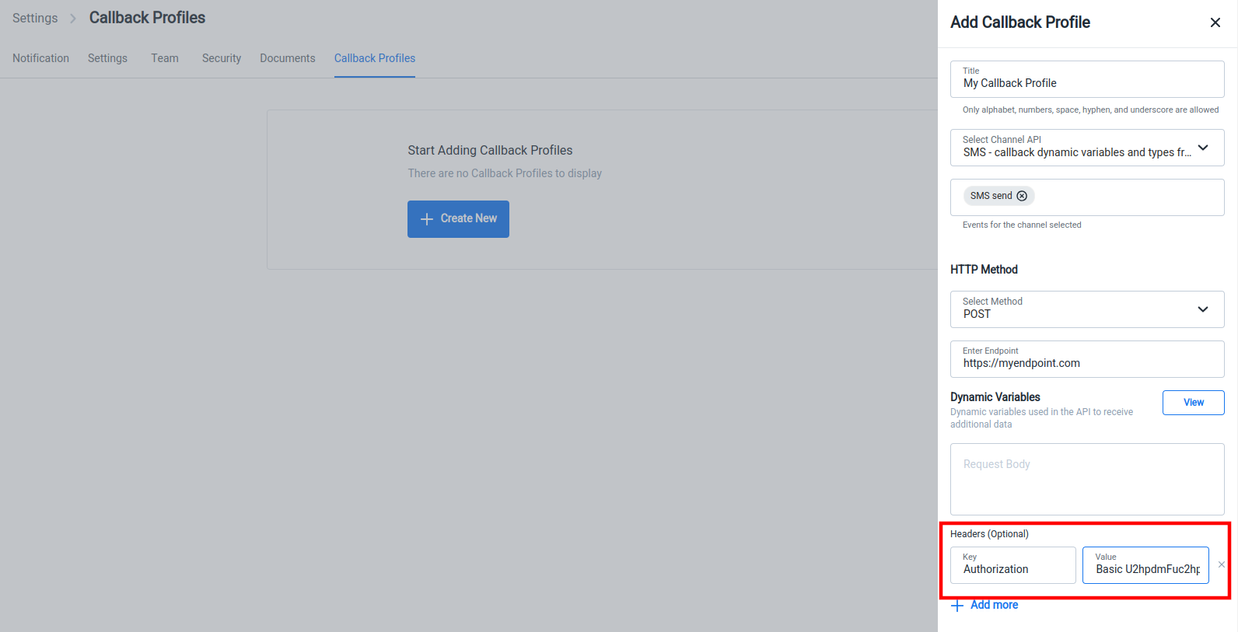Callback Basic Authentication
This page explains how to authenticate callback requests with the help of a security token that you can provide in the callback headers and that can be used to validate the callback that is sent to your configured endpoint.
Basic Authentication
Basic authentication is an authentication method in which a security token, containing base-64 encoded user credentials such as username and password, is transmitted through the Authorization header.
The basic authentication requires the header to be in the form: "Authorization: Basic base64(username:password)”.
You can configure a callback profile for basic authentication by adding an 'Authorization header' in the form of a key-value pair as shown. The authorization header can be added both to a new and an existing callback profile by specifying the 'Authorization header' along with the other configuration headers with the required values.
Note:Authentication done using the API-key is another type of authentication in which, a non-encoded token (with no sensitive information) is sent as a header with a custom name.
You can configure a callback profile for Basic Authentication by adding an Authorization header in the form of a key-value pair as shown. The authorization header can be added both for new and existing callback profiles by specifying the Authorization header among the configuration headers with the required values.

Once the callback configuration is saved, all callback requests toward the customer endpoint for that profile are transmitted with the Authorization header added in the request header set.
Updated 8 months ago
